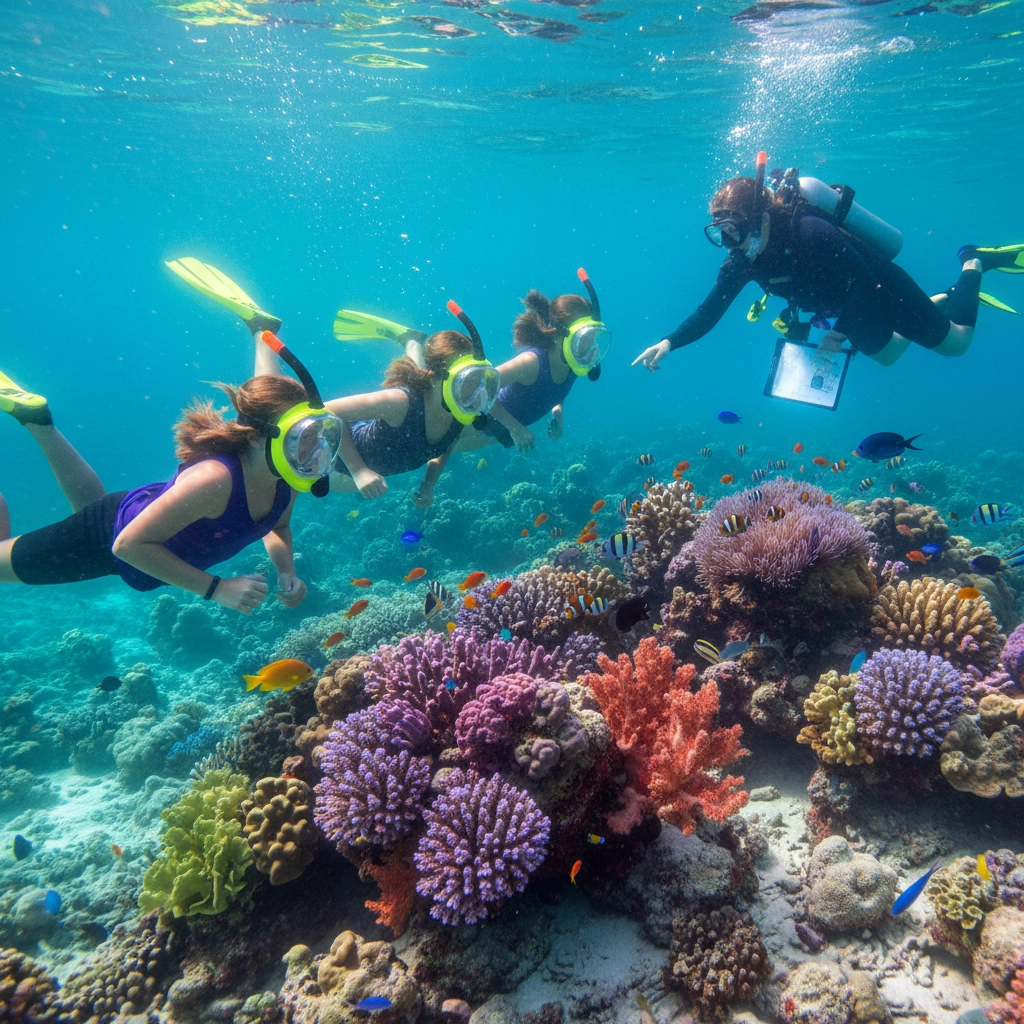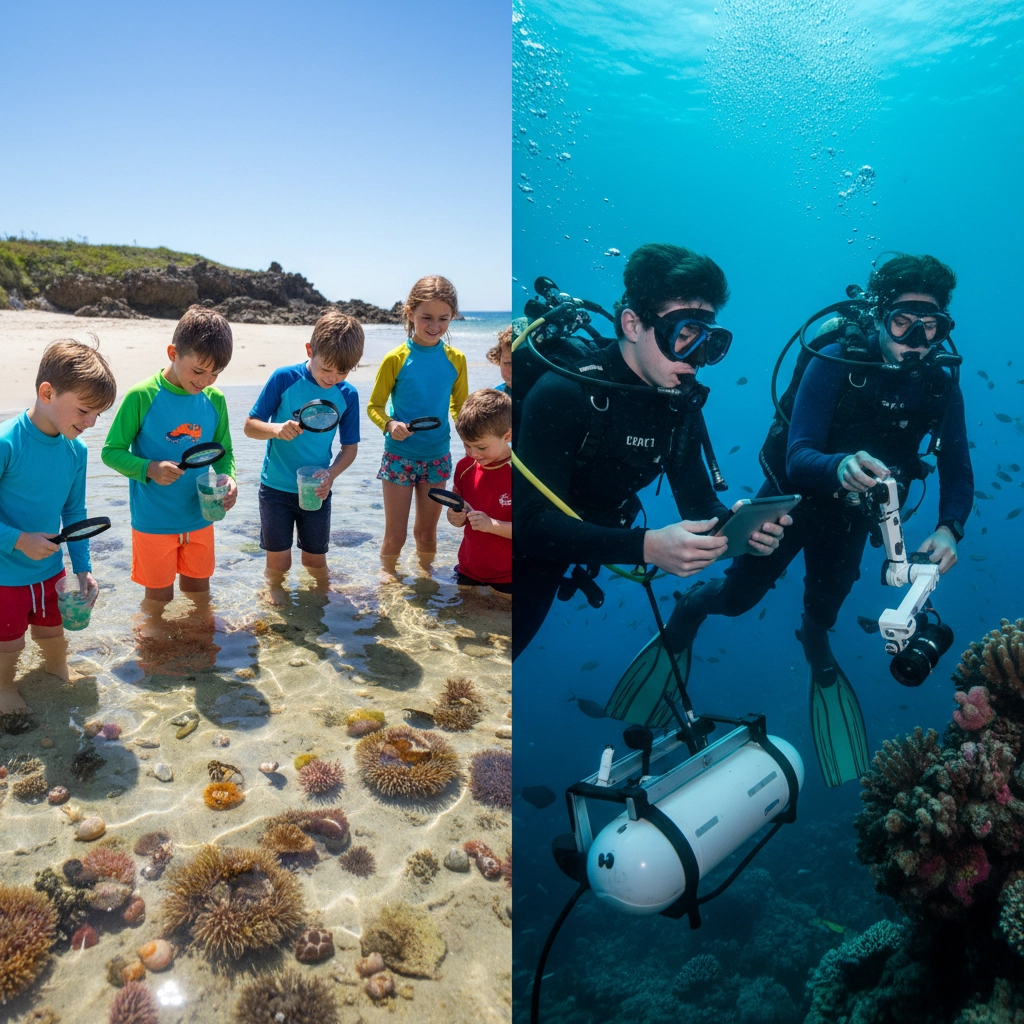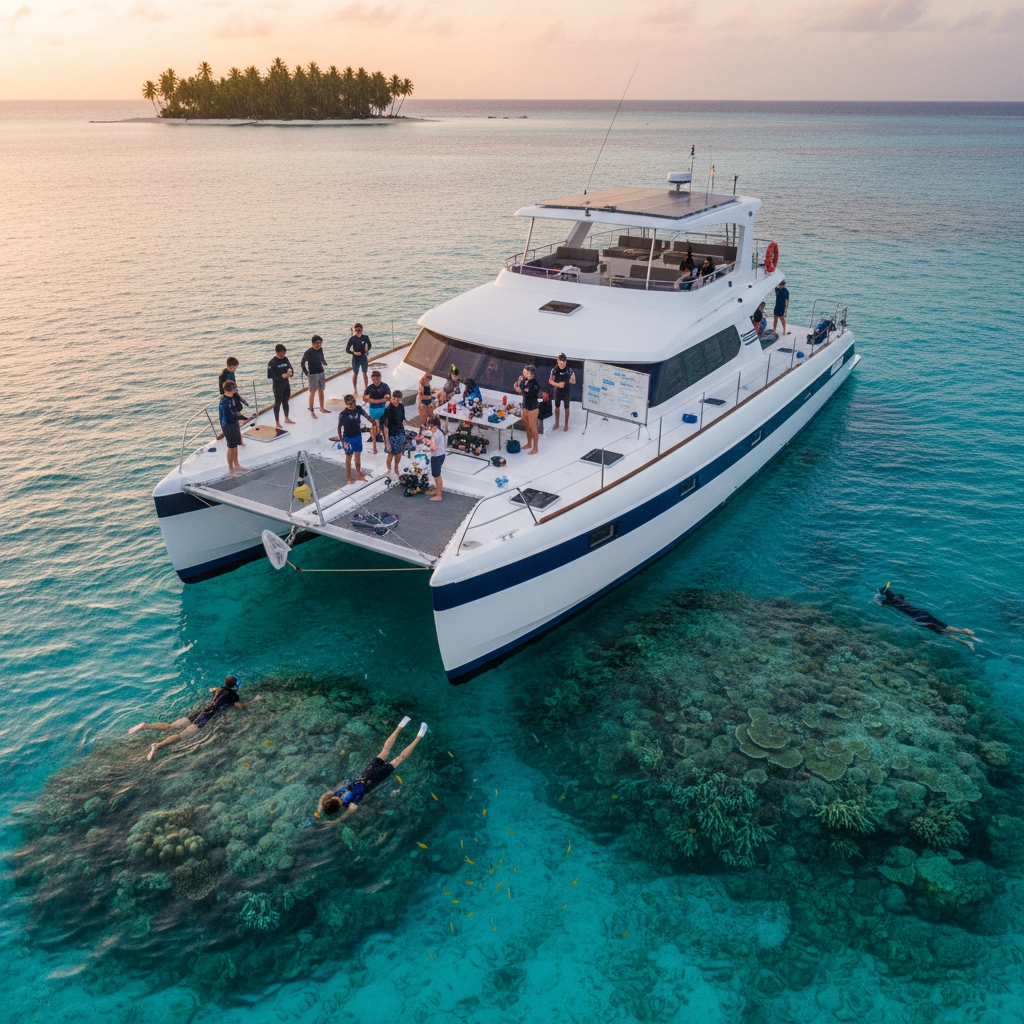Middle School Science Trips vs. High School Expeditions: Which Marine Science Experience Is Right for Your Students?
- Caleb Mullenix
- Oct 20, 2025
- 5 min read
Selecting the appropriate marine science educational experience for your students represents a critical decision that can shape their academic trajectory and career interests. Understanding the distinct differences between middle school science trips and high school expeditions ensures you provide age-appropriate, engaging, and educationally valuable experiences that maximize learning outcomes while maintaining student safety and engagement.
The Florida Keys offer unparalleled opportunities for both age groups, serving as a living laboratory where students can explore coral reefs, mangrove ecosystems, and diverse marine wildlife. However, the approach, depth, and structure of these experiences must align with students' developmental stages, academic readiness, and educational objectives.
Understanding Middle School Marine Science Programs
Middle school marine science trips prioritize foundational learning through carefully structured, highly supervised experiences that introduce students to marine biology concepts in accessible and engaging ways. These programs typically span three to seven days and focus on building scientific curiosity while establishing basic research skills.
Core Characteristics of Middle School Programs
Supervision and Structure: Middle school programs maintain high adult-to-student ratios with constant supervision. Activities follow predetermined schedules with built-in flexibility to accommodate varying attention spans and energy levels. Adult leaders provide continuous guidance during all activities, from snorkeling sessions to laboratory work.
Multi-disciplinary Approach: Programs integrate chemistry, oceanography, ecology, and marine biology to provide comprehensive understanding of marine ecosystems. Students explore water properties, examine food webs, investigate marine adaptations such as bioluminescence and camouflage, and conduct hands-on dissections of fish and squid to compare anatomical structures.
Interactive Learning Activities: Emphasis remains on experiential learning through controlled experiments and observations. Students participate in simulated oil spill cleanups, test water pH levels, examine ocean acidification effects on shell-based organisms, and use microscopes to observe plankton and water samples.

Accommodation and Safety Focus: Programs utilize day-trip formats or short residential stays at established facilities. Safety protocols remain paramount, with detailed emergency procedures, constant headcounts, and carefully selected activities appropriate for developing swimming abilities and comfort levels in marine environments.
Educational Benefits for Middle School Students
Middle school programs excel at sparking initial interest in marine science careers while building scientific literacy. Students develop observation skills, learn proper data recording techniques, and begin understanding scientific methodology through guided investigations. The social aspect of group learning enhances peer collaboration and communication skills essential for future academic success.
These experiences create lasting memories that often influence high school course selections and career exploration. Students return to classrooms with enhanced understanding of environmental conservation, ecosystem interdependence, and human impacts on marine environments.
High School Marine Science Expeditions
High school expeditions represent a significant elevation in academic rigor, independence expectations, and career preparation focus. These intensive experiences typically extend from one to three weeks and may offer college credit, professional certifications, and service learning hours.
Distinguishing Features of High School Expeditions
Independent Research Opportunities: Students conduct authentic research projects alongside professional marine biologists and researchers. They collect data for ongoing conservation studies, contribute to citizen science initiatives, and engage in problem-solving activities that mirror real-world scientific work.
Advanced Technical Skills: Programs incorporate sophisticated equipment including hydrophones for marine mammal research, advanced microscopy techniques, water quality testing equipment, and GPS mapping technology. Students learn proper protocol for scientific data collection and analysis.
Professional Development Focus: Expeditions emphasize career exploration through direct interaction with marine science professionals, research facility tours, and college program information sessions. Many programs offer networking opportunities with working scientists and graduate students.

Extended Field Experiences: High school students participate in multi-day research expeditions, potentially including liveaboard vessel experiences, camping on remote keys, and extended snorkeling or diving activities. These experiences require physical stamina, emotional maturity, and problem-solving capabilities.
Certification Opportunities: Many programs offer PADI Open Water diving certifications, first aid training, and academic credit through partnerships with colleges and universities. Students may earn up to six college credits in marine science or biology.
Academic and Career Benefits
High school expeditions provide authentic preparation for college-level coursework and career decision-making. Students develop technical writing skills through detailed field journals and research reports. They gain practical experience with scientific equipment and methodologies used in professional research settings.
The intensity and duration of these expeditions build resilience, independence, and leadership capabilities. Students often return with clearer understanding of marine science career paths and enhanced confidence in their academic abilities.
Key Program Comparisons
Program Aspect | Middle School Trips | High School Expeditions |
Duration | 3-7 days | 1-3 weeks |
Supervision Level | Constant adult guidance | Mentored independence |
Academic Focus | Foundational concepts | Advanced research skills |
Physical Demands | Age-appropriate activities | Intensive field work |
Career Preparation | Interest building | Direct career exploration |
Accommodations | Day trips or simple lodging | Research stations, liveaboard vessels |
Group Size | Larger groups acceptable | Smaller cohorts preferred |
Cost Range | $800-$1,500 | $2,000-$4,500 |

Selection Criteria for Educators
Choose Middle School Programs When:
Student Readiness Indicators: Students demonstrate basic swimming competency but may lack extensive water experience. Groups include students with varying comfort levels in marine environments. Academic preparation focuses on general science concepts rather than specialized marine biology coursework.
Educational Objectives: Primary goals include building environmental awareness, introducing scientific methodology, and creating positive associations with marine science. Programs should emphasize fun and engagement over intensive academic rigor.
Logistical Considerations: School calendars allow for shorter trip durations. Budget constraints favor less expensive program options. Parent comfort levels require high supervision ratios and established safety protocols.
Choose High School Expeditions When:
Student Readiness Indicators: Students demonstrate strong swimming abilities and previous outdoor education experience. Participants show serious interest in marine science careers or environmental studies. Groups consist of academically motivated students prepared for intensive learning experiences.
Educational Objectives: Goals include career exploration, college preparation, and development of professional skills. Programs should challenge students academically while building independence and leadership capabilities.
Logistical Considerations: Extended absences from school are feasible and supported by administration. Students and families can manage higher program costs. Participants demonstrate maturity necessary for increased independence and responsibility.
Implementation Recommendations
Preparation Requirements: Regardless of age group, ensure all participants complete swimming assessments, medical clearances, and safety orientation sessions. Provide detailed packing lists, behavior expectations, and emergency contact procedures to students and parents.
Program Communication: Maintain clear communication channels with program providers regarding academic objectives, safety protocols, and customization options. Request detailed itineraries, instructor qualifications, and emergency response procedures.
Follow-up Activities: Plan post-trip activities that reinforce learning outcomes and maintain student engagement. Consider creating presentations, research projects, or service learning initiatives that extend the educational impact beyond the trip duration.

Assessment and Evaluation: Develop methods for measuring educational outcomes, including pre- and post-trip assessments, student reflections, and parent feedback. Use evaluation results to improve future program selections and preparation activities.
The Florida Keys provide exceptional marine science learning opportunities for both middle school and high school students. Success depends on matching program intensity, duration, and objectives with student developmental readiness and educational goals. Careful selection ensures transformative experiences that inspire lifelong appreciation for marine conservation and potentially influence career directions in environmental science fields.
Remember that both program types offer valuable educational benefits when properly matched to student needs and capabilities. The key lies in thorough preparation, clear communication, and commitment to safety while maximizing the unique learning opportunities available in one of America's premier marine ecosystems.



Comments